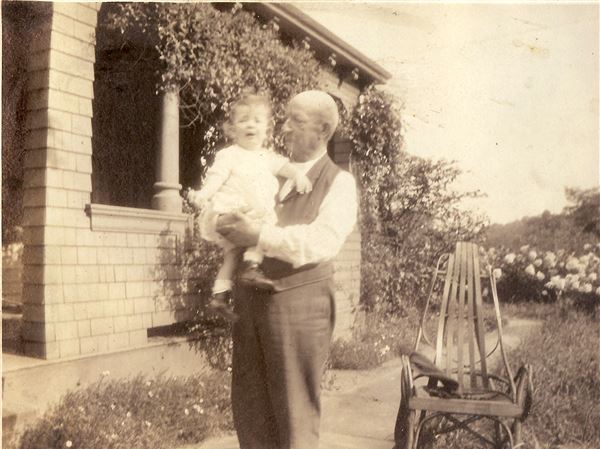Wealth managers say children tend to see inheritances as a measure of the love their parents have for them. In that sense, the will can become the ultimate report card.
But leaving an equal inheritance to all children is not always the best solution -- and sometimes it might not even be fair.
"My philosophy is you should create equal, not give equal," said Fred Rock, managing director at Focus Investment Banking, Downtown.
Mr. Rock, who specializes in helping business owners buy and sell companies, said his rationale has a lot to do with the way parents give to their children while they are alive.
"Many parents who leave equally to their children give unequally while they are living," Mr. Rock said. "They see that one kid needs something and they don't have to tell the other siblings if they are doing something for that child.
"What I'm saying is if you think that's appropriate in those situations, why not perpetuate it in the will?"
Sometimes there are good reasons to leave unequal amounts of money to children.
Parents may have already paid for large purchases for a child, such as a house or a medical school education, when other siblings did not receive the same financial benefit. One child may already be financially successful while another struggles to make ends meet.
Robert German, a partner at the Sherrad, German & Kelly law firm, Downtown, said when it comes to the distribution of an estate, most of his clients are focused on an equal division among their children.
The one situation where an estate is most often unequally divided is when one of the children has a medical disability.
"If a child has a medical disability that impairs their earnings ability, there is a concern that they are going to need a much greater hand with things down the road," Mr. German said. "But assuming that all three, four or five kids are all in good health -- even though one might be struggling a bit and another might be a very successful entrepreneur or doctor -- typically parents feel whatever they have belongs to all of them equally.
"Sometimes even if a child tells you it's OK to give more to another child, they might not really mean it, so you have to be sure you are really comfortable with what you are doing. You run the risk of dividing the family after you are gone."
PNC Financial Services Group recently commissioned Washington, D.C.-based Artemis Strategy Group to survey 560 people nationwide with assets of at least $1 million and found that 86 percent intend to leave assets for the next generation, which include property, family heirlooms or some form of ownership or participation in a business.
More than four in five American millionaires in the PNC study feel each generation should be responsible for creating its own wealth. One third of millionaires anticipate a decline in the wealth they will pass on. But 79 percent reported they expect to pass at least $500,000 to their heirs.
One of the most common discussions Mike Blehar said he has with clients is whether or not the inheritance should be equal.
"Here's how it usually goes," said Mr. Blehar, managing director at Fort Pitt Capital in Green Tree. "One son is doing great and making a lot of money. The other son is not doing as well and does not have a substantial income.
"But they really have no idea where either of these children will end up financially," he said. "The one with the great job could lose it and end up in bankruptcy, while the other one may plod along, do OK and have a perfectly fine lifestyle. In that scenario, it would be unfair to leave more to one than the other.
"Typically, they don't share their plans with children. They limit those discussions with us. I can tell you there can be some very hard feelings after the parents are gone and the details of a lopsided will come out. The parents have to consider the emotions that may occur."
There are circumstances, however, when most financial advisers agree that it makes sense for parents to make unequal gifts to heirs. The most common situation is when a family business is involved.
"If one has been involved in the business and has been successful in growing the business and the family wealth, what we have seen is the business often will be left to that one child," Mr. Blehar said. "That makes sense because that child has devoted the effort necessary to make the business a success.
"The other siblings, you hope, won't have resentment in a case like that."
When a child feels slighted, it could lead to a lawsuit challenging the validity of the will.
Jayme Meredith, vice president of the Hefren-Tillotson financial services firm, Downtown, said most of the estates that the firm settles end amicably. Unfortunately, he said, a large number of heirs have done some pretty distasteful things over the years.
"We have had siblings stop talking to each other after viciously arguing over non-life-changing sums of money, such as a few thousand dollars," he said. "We have had heirs show up to our office in the afternoon following a morning funeral demanding a check for their portion of the estate.
"We have had clients liquidate large IRA accounts, incurring tens of thousands of dollars in unnecessary income tax that may have been avoided or reduced if a more patient distribution was followed or forced via a trust."
Mr. Meredith said a few years ago the firm dealt with a professional money manager who tried to circumvent his father's will by trying to liquidate his father's assets using an outdated power-of-attorney document. He was able to liquidate several bank accounts and when Hefren-Tillotson rejected his requests, the man tried to transfer his father's accounts out of the firm to accounts he had established with his own firm.
"Thankfully, we were able to stay one step ahead and the assets held with us went as the deceased had directed," Mr. Meredith said.
Parents can raise the odds of maintaining family harmony after they are gone by leaving an equal inheritance. But if they plan to leave a lopsided one, Mr. Rock said he strongly suggests parents have a conversation with their children or at the very least leave a note in the will explaining why the inheritance is unequal.
"You should only leave an unequal inheritance when there has been a discussion with the children, especially the child who is getting short-changed, and only if that child agrees to it," Mr. Rock said. "The real key is to get the kid who is not going to receive as much to buy into this process.
"Sometimes it will work if a child recognizes the significant disparity in income and how they are living and how their siblings are living. In most cases, parents end up giving equally because most children are not that unselfish. It's a tough decision to walk away from money.
"The most important thing for most parents is that, at the end of the day, they want their children to be close with each other."
First Published: January 23, 2013, 5:00 a.m.















